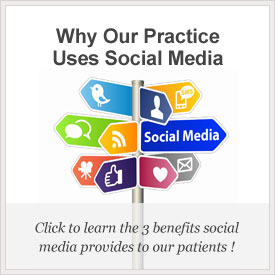What’s Different About Women’s Oral Health?

HEALTH CONCERNS CAN BE a lot different for women than for men, and that even includes dental health! Women face a different set of challenges than men do in caring for their teeth and gums, as well as having different advantages.
Which Oral Health Conditions Are More Common for Women?
Did you know that 90% of people diagnosed with temporomandibular joint disorder (TMD) are women? TMD is chronic pain or soreness in the joints of the jaw. It’s typically caused by bruxism (teeth grinding), but joint structure, stress, arthritis, vitamin deficiency, or hormones could also be responsible.
Another condition women are more likely to be affected by than men is Sjörgen’s syndrome, an autoimmune disorder in which the immune system mistakenly attacks parts of the body, particularly salivary glands and tear ducts, causing both dry mouth and dry eye. In addition to making chewing and swallowing difficult and uncomfortable and interfering with the sense of taste, dry mouth is dangerous to oral health.
Hormonal Changes Can Affect Teeth
Puberty, pregnancy, and menopause all come with major hormonal changes that can impact oral health. Gingivitis and gum inflammation are more common during puberty and pregnancy, which makes good daily dental health habits like brushing and flossing even more important under these conditions.
Menopause is associated with a higher incidence of dry mouth and bone loss in the jaw. This bone loss can compromise the gum tissue and the roots of teeth, which is why it’s important to discuss it with the dentist (preferably before any symptoms have even begun).
Eating Disorders Are a Serious Oral Health Problem
Women aren’t the only ones who struggle with eating disorders, but they are certainly twice as common among teenage girls as teenage boys. Eating disorders are incredibly dangerous and damage every system in the body, including teeth and gums. It’s a two-pronged attack on oral health: malnutrition weakens the oral tissues and the immune system while acid erosion (in the case of bulimia) destroys tooth enamel.
We encourage anyone struggling with an eating disorder to seek psychiatric help so that they can begin the mental recovery process. The dental health recovery process will likely require help in the form of a rigorous dental hygiene routine and professional attention from the dentist.
The Dentist Is the Expert on Women’s Oral Health
With all these risk factors women face in keeping their teeth and gums healthy, are there really any up-sides? Yes, actually, and it’s a big one. Women tend to be better than men at taking care of their teeth! Women are more likely to maintain good oral health habits, and they’re also better at keeping up with their regular dental exams and getting the dentist’s help when they experience tooth pain (as opposed to trying to tough it out), so even if they are more susceptible to certain problems, the impact is reduced!
















My daughter and I love going to see Dr Aparna Sadineni and her professional staff. We never have to wait and the staff knows us like a second family. I highly recommend this office!